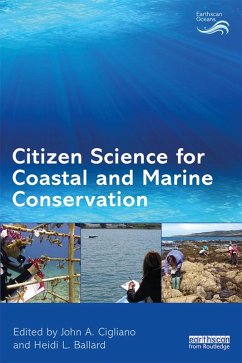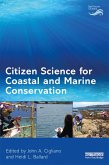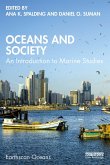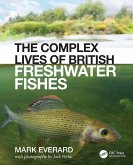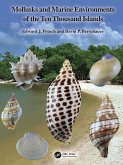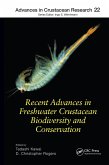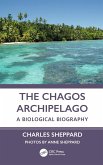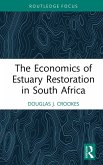Citizen Science for Coastal and Marine Conservation (eBook, ePUB)
Redaktion: Cigliano, John A.; Ballard, Heidi L.
57,95 €
57,95 €
inkl. MwSt.
Sofort per Download lieferbar

29 °P sammeln
57,95 €
Als Download kaufen

57,95 €
inkl. MwSt.
Sofort per Download lieferbar

29 °P sammeln
Jetzt verschenken
Alle Infos zum eBook verschenken
57,95 €
inkl. MwSt.
Sofort per Download lieferbar
Alle Infos zum eBook verschenken

29 °P sammeln
Citizen Science for Coastal and Marine Conservation (eBook, ePUB)
Redaktion: Cigliano, John A.; Ballard, Heidi L.
- Format: ePub
- Merkliste
- Auf die Merkliste
- Bewerten Bewerten
- Teilen
- Produkt teilen
- Produkterinnerung
- Produkterinnerung

Bitte loggen Sie sich zunächst in Ihr Kundenkonto ein oder registrieren Sie sich bei
bücher.de, um das eBook-Abo tolino select nutzen zu können.
Hier können Sie sich einloggen
Hier können Sie sich einloggen
Sie sind bereits eingeloggt. Klicken Sie auf 2. tolino select Abo, um fortzufahren.

Bitte loggen Sie sich zunächst in Ihr Kundenkonto ein oder registrieren Sie sich bei bücher.de, um das eBook-Abo tolino select nutzen zu können.
This is the first book to provide much needed guidance and case studies concerning citizen science from marine and coastal conservation
- Geräte: eReader
- mit Kopierschutz
- eBook Hilfe
- Größe: 11.28MB
Andere Kunden interessierten sich auch für
![Citizen Science for Coastal and Marine Conservation (eBook, PDF) Citizen Science for Coastal and Marine Conservation (eBook, PDF)]() Citizen Science for Coastal and Marine Conservation (eBook, PDF)57,95 €
Citizen Science for Coastal and Marine Conservation (eBook, PDF)57,95 €![Oceans and Society (eBook, ePUB) Oceans and Society (eBook, ePUB)]() Oceans and Society (eBook, ePUB)35,95 €
Oceans and Society (eBook, ePUB)35,95 €![The Complex Lives of British Freshwater Fishes (eBook, ePUB) The Complex Lives of British Freshwater Fishes (eBook, ePUB)]() Mark EverardThe Complex Lives of British Freshwater Fishes (eBook, ePUB)34,95 €
Mark EverardThe Complex Lives of British Freshwater Fishes (eBook, ePUB)34,95 €![Mollusks and Marine Environments of the Ten Thousand Islands (eBook, ePUB) Mollusks and Marine Environments of the Ten Thousand Islands (eBook, ePUB)]() Edward J. PetuchMollusks and Marine Environments of the Ten Thousand Islands (eBook, ePUB)52,95 €
Edward J. PetuchMollusks and Marine Environments of the Ten Thousand Islands (eBook, ePUB)52,95 €![Recent Advances in Freshwater Crustacean Biodiversity and Conservation (eBook, ePUB) Recent Advances in Freshwater Crustacean Biodiversity and Conservation (eBook, ePUB)]() Recent Advances in Freshwater Crustacean Biodiversity and Conservation (eBook, ePUB)75,95 €
Recent Advances in Freshwater Crustacean Biodiversity and Conservation (eBook, ePUB)75,95 €![The Chagos Archipelago (eBook, ePUB) The Chagos Archipelago (eBook, ePUB)]() Charles SheppardThe Chagos Archipelago (eBook, ePUB)120,95 €
Charles SheppardThe Chagos Archipelago (eBook, ePUB)120,95 €![The Economics of Estuary Restoration in South Africa (eBook, ePUB) The Economics of Estuary Restoration in South Africa (eBook, ePUB)]() Douglas J. CrookesThe Economics of Estuary Restoration in South Africa (eBook, ePUB)21,95 €
Douglas J. CrookesThe Economics of Estuary Restoration in South Africa (eBook, ePUB)21,95 €-
-
-
This is the first book to provide much needed guidance and case studies concerning citizen science from marine and coastal conservation
Dieser Download kann aus rechtlichen Gründen nur mit Rechnungsadresse in A, B, BG, CY, CZ, D, DK, EW, E, FIN, F, GR, HR, H, IRL, I, LT, L, LR, M, NL, PL, P, R, S, SLO, SK ausgeliefert werden.
Produktdetails
- Produktdetails
- Verlag: Taylor & Francis
- Seitenzahl: 316
- Erscheinungstermin: 31. Oktober 2017
- Englisch
- ISBN-13: 9781317272601
- Artikelnr.: 50138819
- Verlag: Taylor & Francis
- Seitenzahl: 316
- Erscheinungstermin: 31. Oktober 2017
- Englisch
- ISBN-13: 9781317272601
- Artikelnr.: 50138819
- Herstellerkennzeichnung Die Herstellerinformationen sind derzeit nicht verfügbar.
John A. Cigliano is Professor of Biology and Director of Environmental Conservation in the Department of Biological Sciences, Cedar Crest College, Allentown, Pennsylvania, USA; adjunct faculty at the Schoodic Institute at Acadia National Park, Winter Harbor, Maine, USA; and an Earthwatch Institute Principal Investigator. He collaborates with citizen scientists to study the effects of ocean acidification and warming on temperate rocky-intertidal organisms and communities. John is currently the Past President of the Marine Section, the Vice President of the Participatory and Citizen Science Working Group, both of the Society for Conservation Biology, and a founding member of the Citizen Science Association. Heidi L. Ballard is Associate Professor of Environmental Science Education and Faculty Director of the Center for Community and Citizen Science at the University of California, Davis, USA. She leads research on what and how adults and youth learn about science, the environment, and their communities through participation in citizen science and community science. She is on the Editorial Board of Citizen Science: Theory and Practice, and a member of several professional societies' working groups focused on citizen science. She has collaborated with numerous citizen and community science projects internationally to help improve design and evaluation of their programs.
Part I Introduction 1. The Promise and Need of Citizen Science for Coastal
and Marine Conservation Part II: The practice of marine and coastal citizen
science for conservation.- Section Intro Paragraph 2. Defining the Baseline
and Tracking Change in Seabird Populations: The Coastal Observation and
Seabird Survey Team (COASST) 3. Using citizen science to address
conservation issues related to climate change and coastal systems 4.
Citizen Sentinels: The role of Citizen Scientists in Reporting and
Monitoring Invasive Non-Native Species 5. Using citizen science to study
the impact of vessel traffic on marine mammal populations 6. Marine Litter
- bringing together citizen scientists from around the world 7. Using
Citizen Science to Inform Ocean and Coastal Resource Management 8.
Engagement in Marine Conservation through Citizen Science: A
Community-Based Approach to Eelgrass Restoration in Frenchman Bay, Maine,
USA 9. Citizen Science and Marine Policy Part III: The People and
Perspectives of Marine and Coastal Citizen Science: Diverse Interests,
Needs, and Benefits 10. Collaborating with indigenous citizen scientists
towards sustainable coral reef management in a changing world: the One
People One Reef Program 11. Engaging Youth and Schools in Coastal Citizen
Science: Balancing Both Education and Science Goals 12. Uniquely marine:
snorkelers and divers as citizen scientists Part IV Conclusions - Lessons
Learned and Best Practices for marine and coastal conservation citizen
science 13. Communication and Trust-Building with the Broader Public
through Marine and Coastal Citizen Science 14. Conclusions: Lessons Learned
and Next Steps for Citizen Science in Marine and Coastal Conservation
and Marine Conservation Part II: The practice of marine and coastal citizen
science for conservation.- Section Intro Paragraph 2. Defining the Baseline
and Tracking Change in Seabird Populations: The Coastal Observation and
Seabird Survey Team (COASST) 3. Using citizen science to address
conservation issues related to climate change and coastal systems 4.
Citizen Sentinels: The role of Citizen Scientists in Reporting and
Monitoring Invasive Non-Native Species 5. Using citizen science to study
the impact of vessel traffic on marine mammal populations 6. Marine Litter
- bringing together citizen scientists from around the world 7. Using
Citizen Science to Inform Ocean and Coastal Resource Management 8.
Engagement in Marine Conservation through Citizen Science: A
Community-Based Approach to Eelgrass Restoration in Frenchman Bay, Maine,
USA 9. Citizen Science and Marine Policy Part III: The People and
Perspectives of Marine and Coastal Citizen Science: Diverse Interests,
Needs, and Benefits 10. Collaborating with indigenous citizen scientists
towards sustainable coral reef management in a changing world: the One
People One Reef Program 11. Engaging Youth and Schools in Coastal Citizen
Science: Balancing Both Education and Science Goals 12. Uniquely marine:
snorkelers and divers as citizen scientists Part IV Conclusions - Lessons
Learned and Best Practices for marine and coastal conservation citizen
science 13. Communication and Trust-Building with the Broader Public
through Marine and Coastal Citizen Science 14. Conclusions: Lessons Learned
and Next Steps for Citizen Science in Marine and Coastal Conservation
Part I Introduction 1. The Promise and Need of Citizen Science for Coastal
and Marine Conservation Part II: The practice of marine and coastal citizen
science for conservation.- Section Intro Paragraph 2. Defining the Baseline
and Tracking Change in Seabird Populations: The Coastal Observation and
Seabird Survey Team (COASST) 3. Using citizen science to address
conservation issues related to climate change and coastal systems 4.
Citizen Sentinels: The role of Citizen Scientists in Reporting and
Monitoring Invasive Non-Native Species 5. Using citizen science to study
the impact of vessel traffic on marine mammal populations 6. Marine Litter
- bringing together citizen scientists from around the world 7. Using
Citizen Science to Inform Ocean and Coastal Resource Management 8.
Engagement in Marine Conservation through Citizen Science: A
Community-Based Approach to Eelgrass Restoration in Frenchman Bay, Maine,
USA 9. Citizen Science and Marine Policy Part III: The People and
Perspectives of Marine and Coastal Citizen Science: Diverse Interests,
Needs, and Benefits 10. Collaborating with indigenous citizen scientists
towards sustainable coral reef management in a changing world: the One
People One Reef Program 11. Engaging Youth and Schools in Coastal Citizen
Science: Balancing Both Education and Science Goals 12. Uniquely marine:
snorkelers and divers as citizen scientists Part IV Conclusions - Lessons
Learned and Best Practices for marine and coastal conservation citizen
science 13. Communication and Trust-Building with the Broader Public
through Marine and Coastal Citizen Science 14. Conclusions: Lessons Learned
and Next Steps for Citizen Science in Marine and Coastal Conservation
and Marine Conservation Part II: The practice of marine and coastal citizen
science for conservation.- Section Intro Paragraph 2. Defining the Baseline
and Tracking Change in Seabird Populations: The Coastal Observation and
Seabird Survey Team (COASST) 3. Using citizen science to address
conservation issues related to climate change and coastal systems 4.
Citizen Sentinels: The role of Citizen Scientists in Reporting and
Monitoring Invasive Non-Native Species 5. Using citizen science to study
the impact of vessel traffic on marine mammal populations 6. Marine Litter
- bringing together citizen scientists from around the world 7. Using
Citizen Science to Inform Ocean and Coastal Resource Management 8.
Engagement in Marine Conservation through Citizen Science: A
Community-Based Approach to Eelgrass Restoration in Frenchman Bay, Maine,
USA 9. Citizen Science and Marine Policy Part III: The People and
Perspectives of Marine and Coastal Citizen Science: Diverse Interests,
Needs, and Benefits 10. Collaborating with indigenous citizen scientists
towards sustainable coral reef management in a changing world: the One
People One Reef Program 11. Engaging Youth and Schools in Coastal Citizen
Science: Balancing Both Education and Science Goals 12. Uniquely marine:
snorkelers and divers as citizen scientists Part IV Conclusions - Lessons
Learned and Best Practices for marine and coastal conservation citizen
science 13. Communication and Trust-Building with the Broader Public
through Marine and Coastal Citizen Science 14. Conclusions: Lessons Learned
and Next Steps for Citizen Science in Marine and Coastal Conservation
